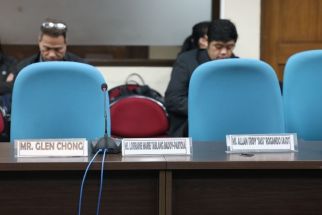US reaffirms ‘open skies’ is best policy for RP
October 12, 2002 | 12:00am
The United States through its Manila embassy has reaffirmed official policy to seek the most liberal air accords with the Philippines, saying open skies is the best policy for airlines and consumers alike.
Charges d’ affaires Joseph Mussomeli said the US has proposed an all-cargo open skies deal with the Philippines and is committed to the existing bilateral pact to have open skies on passenger service by next year.
Speaking before the local chapter of the American Chamber of Commerce of the Philippines, Mussomeli said Manila has agreed in principle to the proposed cargo service pact and the two sides "are trying to find a mutually convenient date for negotiations".
On passenger service, Mussomeli said "the open skies provision of the 1982 US-Philippine Air Transportation Agreement, is currently scheduled to come into effect on Sept. 30, 2003. This is the provision that would remove current limitations on the frequency of flights. Our policy is to move forward with open skies."
He said the US wants limits on frequency removed and liberal rules in place because this is the best policy framework. "These agreements provide airlines with flexibility they need to adjust to the market rapidly, in lean times as well as in good times.
"Experience leads us to believe that open skies is the best policy, best for airlines and best for the consumer," Mussomeli said.
He emphasized that the point of open skies is "to get governments out of the business of making decisions for airlines. It means that airlines decide basic questions such as how many flights a week there should be, what equipment should be used, and what destinations should be served."
"Our policy is that the market should provide the answers, and it is for the airline companies to determine what those answers mean for their operations," he said.
Mussomeli cited Manila’s poor experience in the Middle East as an example of what happens when "non-market restrictions are placed on airline operations".
"One of the most important aspects of the local economy is overseas foreign workers. Yet there is a long waiting line for Philippine workers and others who want to fly to and from the Middle East, where there are strict limits on the number of flights."
He indicated the Philippines is missing out on a trend for more vacationers from the Middle East to visit Asian countries because of few flights between the Philippines and that region.
"They are far more likely to go to Thailand, Malaysia, Singapore or Hong Kong than to the Philippines because these countries all have 20 or more flights per week to the Middle East, compared with only six, for example, between the UAE and the Philippines," he said.
Charges d’ affaires Joseph Mussomeli said the US has proposed an all-cargo open skies deal with the Philippines and is committed to the existing bilateral pact to have open skies on passenger service by next year.
Speaking before the local chapter of the American Chamber of Commerce of the Philippines, Mussomeli said Manila has agreed in principle to the proposed cargo service pact and the two sides "are trying to find a mutually convenient date for negotiations".
On passenger service, Mussomeli said "the open skies provision of the 1982 US-Philippine Air Transportation Agreement, is currently scheduled to come into effect on Sept. 30, 2003. This is the provision that would remove current limitations on the frequency of flights. Our policy is to move forward with open skies."
He said the US wants limits on frequency removed and liberal rules in place because this is the best policy framework. "These agreements provide airlines with flexibility they need to adjust to the market rapidly, in lean times as well as in good times.
"Experience leads us to believe that open skies is the best policy, best for airlines and best for the consumer," Mussomeli said.
He emphasized that the point of open skies is "to get governments out of the business of making decisions for airlines. It means that airlines decide basic questions such as how many flights a week there should be, what equipment should be used, and what destinations should be served."
"Our policy is that the market should provide the answers, and it is for the airline companies to determine what those answers mean for their operations," he said.
Mussomeli cited Manila’s poor experience in the Middle East as an example of what happens when "non-market restrictions are placed on airline operations".
"One of the most important aspects of the local economy is overseas foreign workers. Yet there is a long waiting line for Philippine workers and others who want to fly to and from the Middle East, where there are strict limits on the number of flights."
He indicated the Philippines is missing out on a trend for more vacationers from the Middle East to visit Asian countries because of few flights between the Philippines and that region.
"They are far more likely to go to Thailand, Malaysia, Singapore or Hong Kong than to the Philippines because these countries all have 20 or more flights per week to the Middle East, compared with only six, for example, between the UAE and the Philippines," he said.
BrandSpace Articles
<
>
- Latest
- Trending
Trending
Latest
Trending
Latest
Recommended






























